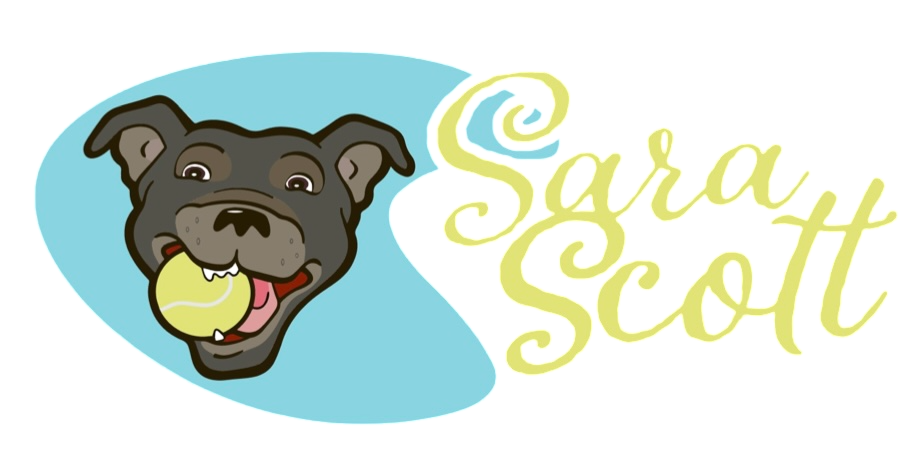Helping Your Dog Recover After Fireworks: What to Do Now
- Sara Scott

- Jul 7, 2025
- 4 min read
Updated: Jul 7, 2025
It’s the Monday after the long holiday weekend — back to the grind for many of us, even if our nervous systems are still catching up. And for dogs? The fireworks might not be over yet. Depending on where you live, the booms and bangs could continue for another week or two, with random pops still sneaking into the evenings. Now that the main event has passed, it’s a good time to check in: how did your dog handle it? Some dogs bounce back quickly, but others may need a longer recovery window — especially if you're noticing any lingering behavior changes. In this post, we’ll look at simple ways to help your dog decompress as firework season starts to wind down.
One of the most common aftershocks of fireworks is a dog who suddenly doesn’t want to go outside — especially when it’s dark or in the early evening. If your dog was outside during one of those loud booms, they may now associate backyard potty breaks with fear. It’s a learned association, and like any association, it can be unlearned with time and positive experiences. If you’re seeing this hesitation, start by going outside with your dog rather than sending them out alone, and be ready with a rewards right after they go to the bathroom. You can also create more positive experiences in the yard by playing simple games or doing light, pressure-free training — things like “spin,” “high five,” or whatever else your dog enjoys. If your dog loves toys, this is a great time to bring out a favorite and make the backyard a place where good things happen again.
Some dogs may not be avoiding the backyard — they’re avoiding the sidewalk. This is especially common for dogs who live in apartments or condos, where every bathroom break means going out on leash. If your dog was outside during peak fireworks time, they may now associate evening leash walks with danger. While some folks could skip the evening walk and wait for quiet hours, not everyone has that luxury. If your dog suddenly seems hesitant to step outside, particularly after dark, now’s the time to bring out the generous snack giver protocol. The goal is simple: help your dog re-learn that being outside on leash — especially during their typical potty times — is safe and full of good things.
Even inside the house, your dog may be telling you they’re still feeling the effects of last week. Pay attention to changes in their usual behavior — it doesn’t have to be dramatic to matter. If your dog normally lounges in the living room during the day but is now tucked away in the bedroom, that’s worth noticing. A dog who’s suddenly more withdrawn, eating or drinking less (or more), or showing signs of digestive upset like loose stool may be showing physical symptoms of stress. These shifts often signal a nervous system that’s been running too hot for too long. When that happens, it’s time to prioritize recovery. Over the next couple of weeks, nose work, decompression walks and ACE free work can be powerful tools to help your dog return to baseline. Both approaches support the nervous system, reduce overall stress, and give your dog space to recalibrate.
You might also notice your dog reacting more strongly to sudden sounds — even ones that didn’t bother them much before. This heightened sound sensitivity can show up anywhere: in the house, out on walks, or in the backyard, depending on what your dog experienced during the fireworks. If you’re seeing this shift, it’s a great time to implement the Boom Be Gone protocol. This approach helps your dog build positive associations with noises so that unexpected sounds don’t trigger a stress response. Whether your dog has always been sound-sensitive or this is something new, it’s never too late to start. The protocol works for all kinds of noises — not just fireworks — and can set the stage for calmer reactions in the future. One last thing: make a quick note of what you noticed this week. What worked, what didn’t, and how your dog responded. You’ll thank yourself later — whether it’s next Fourth of July, New Year’s, or just the next neighborhood celebration that sets off fireworks unexpectedly. Planning ahead always works better than scrambling in the moment. Think of it like getting antibiotics before the infection spreads — early intervention makes everything easier. Helping your dog recover after fireworks isn’t about rushing them back to “normal.” It’s about noticing what’s shifted and giving their nervous system space to reset. Whether your dog just needs a few quiet days or a more structured support plan, the steps you take now can make a real difference — both for their well-being today and their resilience in the future. Keep things simple, stay consistent, and know that recovery is progress, too.
Want to help your dog bounce back with fun, low-pressure games?
Game of Bones is a 4-week online challenge designed to support confidence, adaptability, and stress recovery — perfect for dogs who need a reset after fireworks.
[Join the challenge here →] Get monthly tips on dog behavior, straight from the field.
Join the email list to get thoughtful stories, practical advice, and new blog posts sent directly to your inbox — just once a month.




Comments